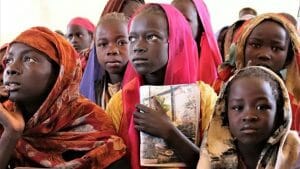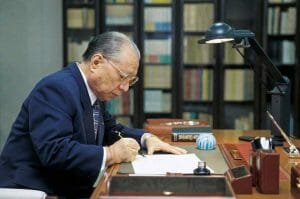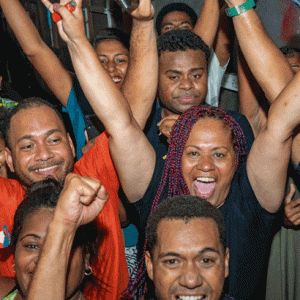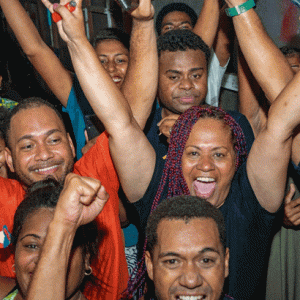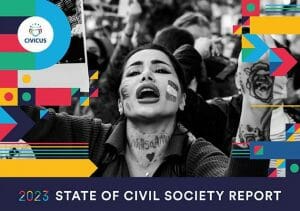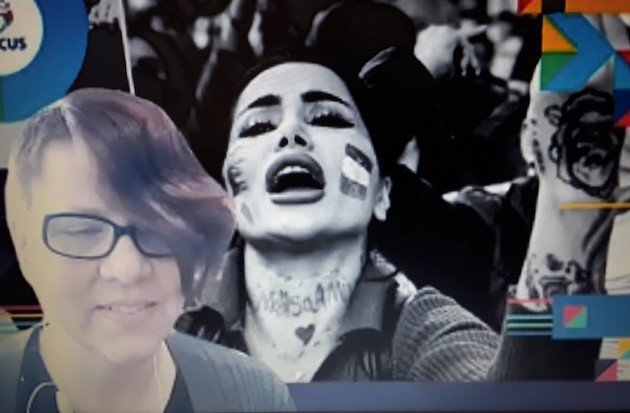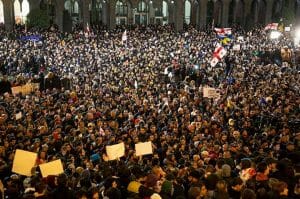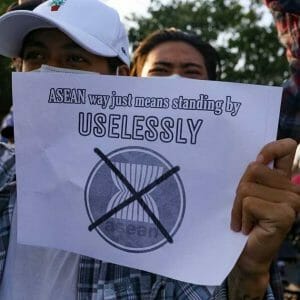
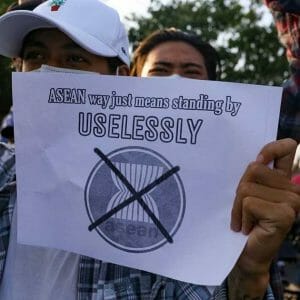
Cover photo by Reuters/Stringer via Gallo Images
By Andrew Firmin
LONDON, Jun 23 2023 (IPS)
The violence keeps coming in Myanmar, under military rule since February 2021. The junta stands accused of war crimes and crimes against humanity, with evidence of systematic use of killings, rape, torture and other gross human rights violations in its attempt to suppress forces demanding a return to democracy.
Even humanitarian aid is restricted. Recently the junta refused to allow in aid organisations trying to provide food, water and medicines to people left in desperate need by a devastating cyclone. It’s far from the first time it’s blocked aid.
Crises like this demand an international response. But largely standing on the sidelines while this happens is the regional intergovernmental body, the Association of Southeast Asian Nations (ASEAN). Its recent summit, held in Indonesia in May, failed to produce any progress.
ASEAN’s inaction
ASEAN’s response to the coup was to issue a text, the Five-Point Consensus (5PC), in April 2021. This called for the immediate cessation of violence and constructive dialogue between all parties. ASEAN agreed to provide humanitarian help, appoint a special envoy and visit Myanmar to meet with all parties.
Civil society criticised this agreement because it recognised the role of the junta and failed to make any mention of the need to restore democracy. And the unmitigated violence and human rights violations are the clearest possible sign that the 5PC isn’t working – but ASEAN sticks to it. At its May summit, ASEAN states reiterated their support for the plan.
A major challenge is that most ASEAN states have no interest in democracy. All 10 have heavily restricted civic space. As well as Myanmar, civic space is closed in Cambodia, Laos and Vietnam.
It wouldn’t suit such states to have a thriving democracy on their doorstep, which could only bring greater domestic and international pressure to follow suit. States that repress human rights at home typically carry the same approach into international organisations, working to limit their ability to uphold human rights commitments and scrutinise violations.
Continuing emphasis on the 5PC hasn’t masked divisions among ASEAN states. Some appear to think they can engage with the junta and at least persuade it to moderate its violence – although reality makes this increasingly untenable. But others, particularly Cambodia – a one-party state led by the same prime minister since 1998 – seem intent on legitimising the junta.
Variable pressure has come from ASEAN’s chair, which rotates annually and appoints the special envoy. Under the last two, Brunei Darussalam – a sultanate that last held an election in 1965 – and Cambodia, little happened. Brunei never visited the country after being refused permission to meet with democratic leaders, while Cambodia’s prime minister, Hun Sen, visited Myanmar last year. The first post-coup visit to Myanmar by a head of government, this could only be construed as conferring legitimacy.
Indonesia, the current chair, hasn’t appointed a special envoy, instead setting up an office headed by the foreign minister. So far it appears to be taking a soft approach of quiet diplomacy rather than public action.
Thailand, currently led by a pro-military government, is also evidently happy to engage with the junta. While junta representatives remain banned from ASEAN summits, Thailand has broken ranks and invited ASEAN foreign ministers, including from Myanmar, to hold talks about reintegrating the junta’s leaders. A government that itself came to power through a coup but should now step aside after an election where it was thoroughly defeated looks to be attempting to bolster the legitimacy of military rule.
ASEAN states seem unable to move beyond the 5PC even as they undermine it. But the fact that they’re formally sticking with it enables the wider international community to stand back, on the basis of respecting regional leadership and the 5PC.
The UN Security Council finally adopted a resolution on Myanmar in December 2022. This called for an immediate end to the violence, the release of all political prisoners and unhindered humanitarian access. But its language didn’t go far enough in condemning systematic human rights violations and continued to emphasise the 5PC. It failed to impose sanctions such as an arms embargo or to refer Myanmar to the International Criminal Court (ICC).
Civil society in Myanmar and the region is urging ASEAN to go further. Many have joined together to develop a five-point agenda that goes beyond the 5PC. It calls for a strategy to end military violence through sanctions, an arms embargo and a referral of Myanmar to the ICC. It demands ASEAN engages beyond the junta, and particularly with democratic forces including the National Unity Government – the democratic government in exile. It urges a strengthening of the special envoy role and a pivoting of humanitarian aid to local responders rather than the junta. ASEAN needs to take this on board.
A fork in the road
ASEAN’s current plan is a recipe for continuing military violence, increasingly legitimised by its neighbours’ acceptance. Ceremonial elections could offer further fuel for this.
The junta once promised to hold elections by August, but in February, on the coup’s second anniversary, it extended the state of emergency for another six months. If and when those elections finally happen, there’s no hope of them being free or fair. In March, the junta dissolved some 40 political parties, including the ousted ruling party, the National League for Democracy.
The only purpose of any eventual fake election will be to give the junta a legitimising veneer to present as a sign of progress – and some ASEAN states may be prepared to buy this. This shouldn’t be allowed. ASEAN needs to listen to the voices of civil society calling for it to get its act together – and stick together – in holding the junta to account. If it doesn’t, it will keep failing not only Myanmar’s people, but all in the region who reasonably expect that fundamental human rights should be respected and those who kill, rape and torture should face justice.
Andrew Firmin is CIVICUS Editor-in-Chief, co-director and writer for CIVICUS Lens and co-author of the State of Civil Society Report.

